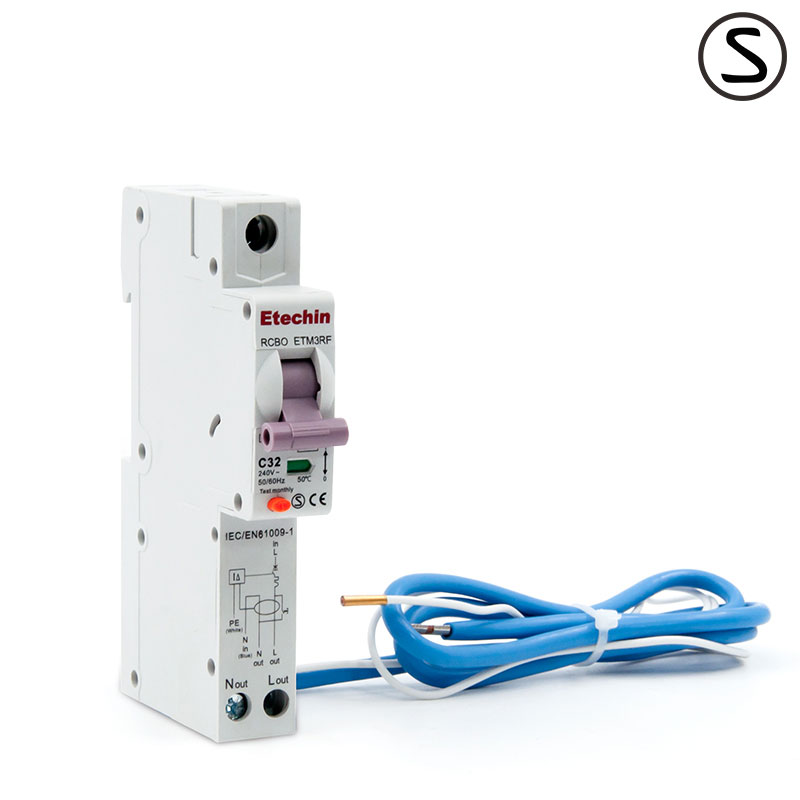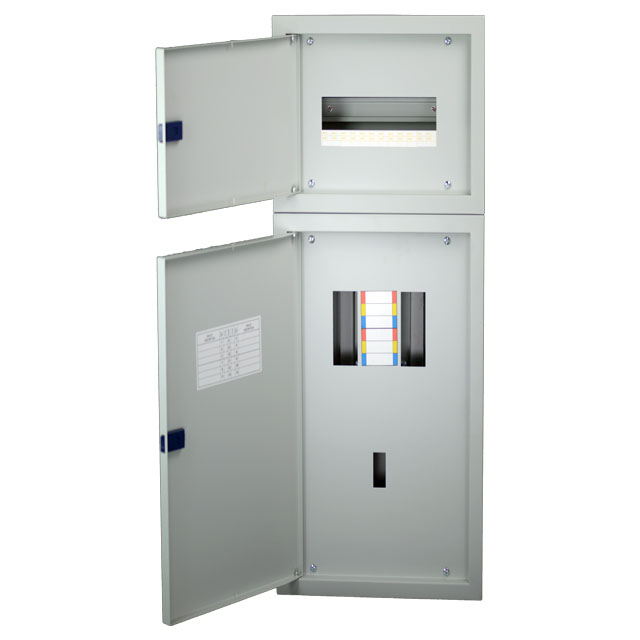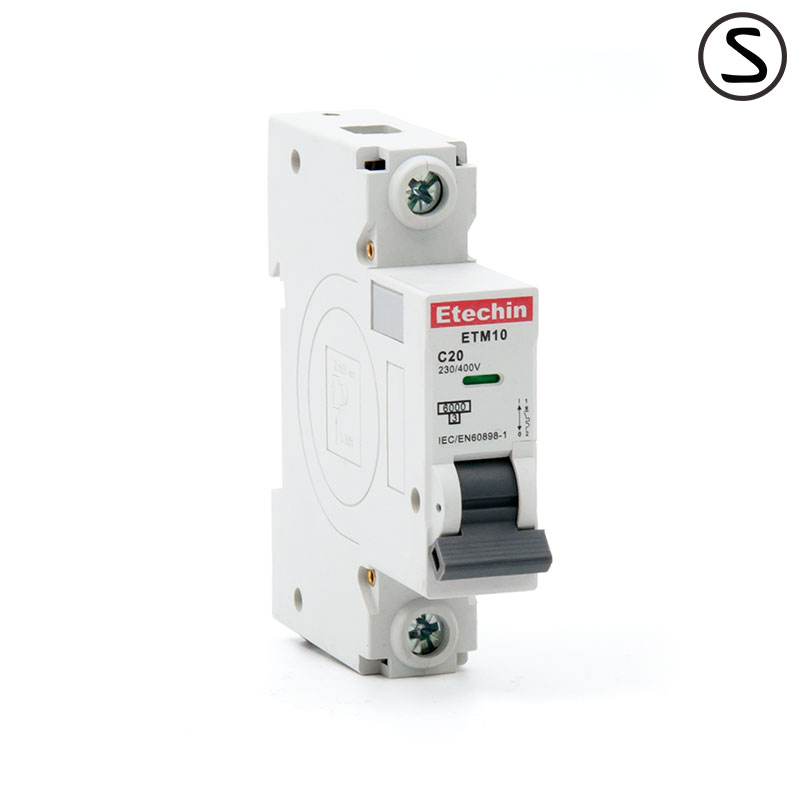| Standard | IEC/EN 60898-1 | ||
| Electrical | Rated current in | A | ( 1 2 3 4) 6 10 16 20 25 32 40 50 63 |
| features | Poles | 1P 2P 3P 4P | |
| Rated voltage Ue | V | 230/400,240/415 | |
| Insulation coltage Ui | V | 500 | |
| Rated frequency | Hz | 50/60Hz | |
| Rated breaking capacity | A | 4.5/6KA | |
| Rated impulse withstand voltage (1.2/50)Uipm | V | 6000 | |
| Dielectric test voltage at and ind.Freq.for 1min | KV | 2 | |
| Pollution degree | 2 | ||
| Themo-magnetic release characteristic | B C D | ||
| Mechanical | Electrical life | above 4000 | |
| features | Machanical life | above 10000 | |
| Contact position indicator | Yes | ||
| Protection degree | IP 20 | ||
| Reference temperature of setting of thermal element | °C | 30 or 50 | |
| Ambient temperature(with daily average≤35°C) | °C | -25~+55 | |
| Storage temperature | °C | -25...+70 | |
| Installation | Terminal connection type | Cable/Pin-type busbar | |
| Terminal size top/bottom for cable | mm² | 25 | |
| AWG | 18-3 | ||
| Terminal size top/bottom for busbar | mm² | 25 | |
| AWG | 18-3 | ||
| Tightening torque | N*m | 3.0 | |
| In-lbs. | 22 | ||
| Mounting | OnDIN rail FN 60715(35mm) | ||
| by means of fast clip device | |||
| Connection | From top and bottom |
- Home
- Products
- 1P, 2P, 3P, 4P B C D curve, MCB, ETM10, AC, miniature circuit breaker, mini circuit breaker, din rail
1P, 2P, 3P, 4P B C D curve, MCB, ETM10, AC, miniature circuit breaker, mini circuit breaker, din rail
As a leading factory, we offer 1P, 2P, 3P, 4P B, C, D curve miniature circuit breakers (MCBs) such as ETM10, AC, DIN rail. High-quality products for all your electrical needs.
Request a QuotePRODUCTS DETAILS
Hot Products

ETB06

ETB03

Plug in type single phase distribution box

1P+N, RCBO, B, C curve, ETM3RF, Electronic Residual Current Breaker with Over-Current protection, din rail

ETB07

1P+N, RCBO, B, C curve, ETM2RF, Residual Current Breaker with Over-Current protection, plug in

MCCB, isolator, MCB main breaker three phase distribution board

Row type single phase distribution board

NB1 series circuit breaker accessories Passive shunt + auxiliary MX+OF AC230V/DC24V

1P+N, RCBO, B, C curve, ETM7RF, Residual Current Breaker with Over-Current protection, plug in
Contact us
Please feel free to give your inquiry in the form below We will reply you in 24 hours








